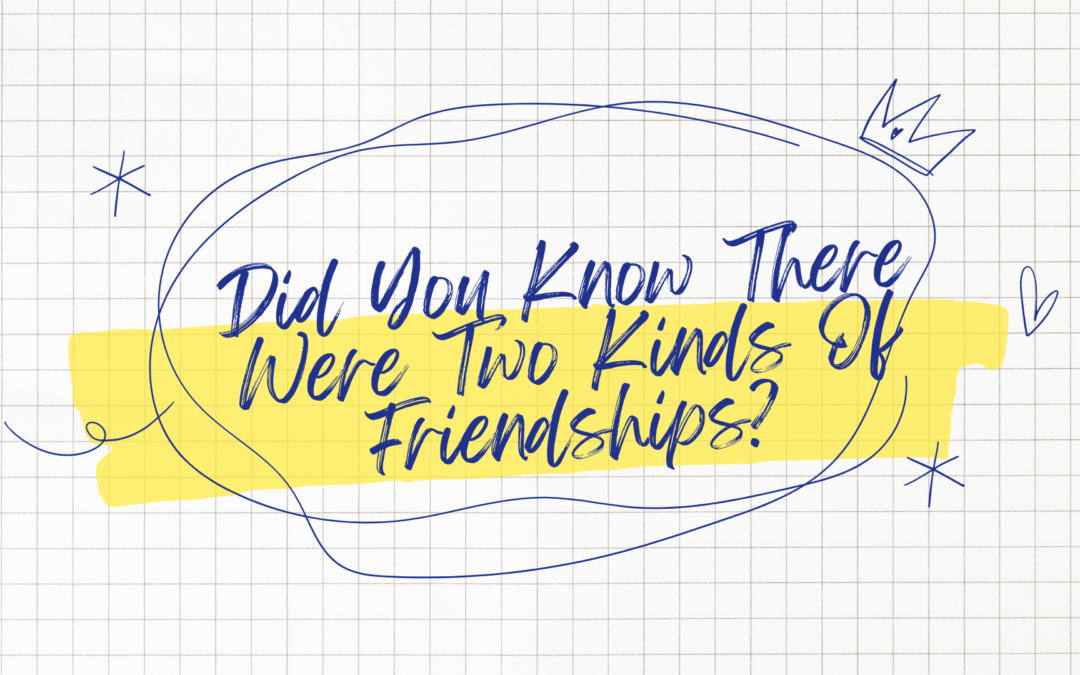I was going to publish this post a few weeks ago but it felt untimely back then. However, meeting one of my last friends to leave the city last week, it became apparent that this post is as timely as ever. It might strike a nerve if you’re still in school and have many friends, but those who have graduated this year know what I’m talking about.
In school, often our friendships start with being in the same class, playing the same sport, or being part of the same extracurricular club. You start by bonding over whatever common thing you have between you and the other person and before you know it, you’re friends.
I bet you can think of friends you made this way. I know I can recall multiple instances.
From this point forward, there is one of two paths that a friendship can take:
a. The friendship is based on convenience.
You see each other every day so you become friends. You have the same classes, lunch periods, and activities. But what happens when you don’t have those things in common anymore? The friendship fades away because there was no effort put into it from the beginning.
These are the friends that you hang out with only because and when it’s convenient for them (or the both of you, not implying that there’s anything wrong with that) and when it’s not, you don’t hear from them. If the common ground between you two slowly ceases to exist, so does the friendship.
b. The friendship is based on efforts
A lot of times, these friendships start off from some common area of interest, just like a friendship of convenience, but the key difference is that you make efforts to maintain the friendship.
You set time aside to meet up, whether it’s going out for coffee or catching a movie. You talk to each other about things other than school and homework. You put genuine effort into getting to know the person and making sure that your friendship doesn’t just fizzle out.
When we’re in school, a lot of our friendships are just friendship of convenience because we see each other every day. But as we grow up and move away from each other, those friendships based off convenience slowly disappear. The only friendships that last are the ones where we put in the effort to maintain them.
Till this point, we had to put in very little effort consciously. To be fair, we weren’t used to making efforts for our friendships, because didn’t have to. And when our friendships start to fade away, we see it as a sign to let the friendship go.
While that might be true in some cases, we need to realise that friendships – or any relationship for that matter – need effort. They aren’t effortless, and they require you to put in your time and energy to make sure that it lasts.
So just because they’re not going as great as they used to or you don’t see each other as often, it doesn’t mean that you should stop trying. All friendships require effort to maintain, and the ones that we put effort into are the ones worth keeping.
As we move away from school and into the “real world”, it becomes increasingly important to foster relationships that are based on genuine effort, not convenience. It’s easy to let friendships fade away when they’re no longer based in our everyday lives, but by making a conscious effort to maintain them, we can create lasting connections with others. These efforts don’t have to be huge or time-consuming; even catching up over coffee or texting each other occasionally can help keep the friendship alive.
Try doing this with some of the friendships that you feel are fading away, and see if it makes a difference. Chances are, you’ll be surprised by it.


Loved it.
[…] a way, I’m picking up from my last post where I talked about what the two kinds of friendships are and how they […]